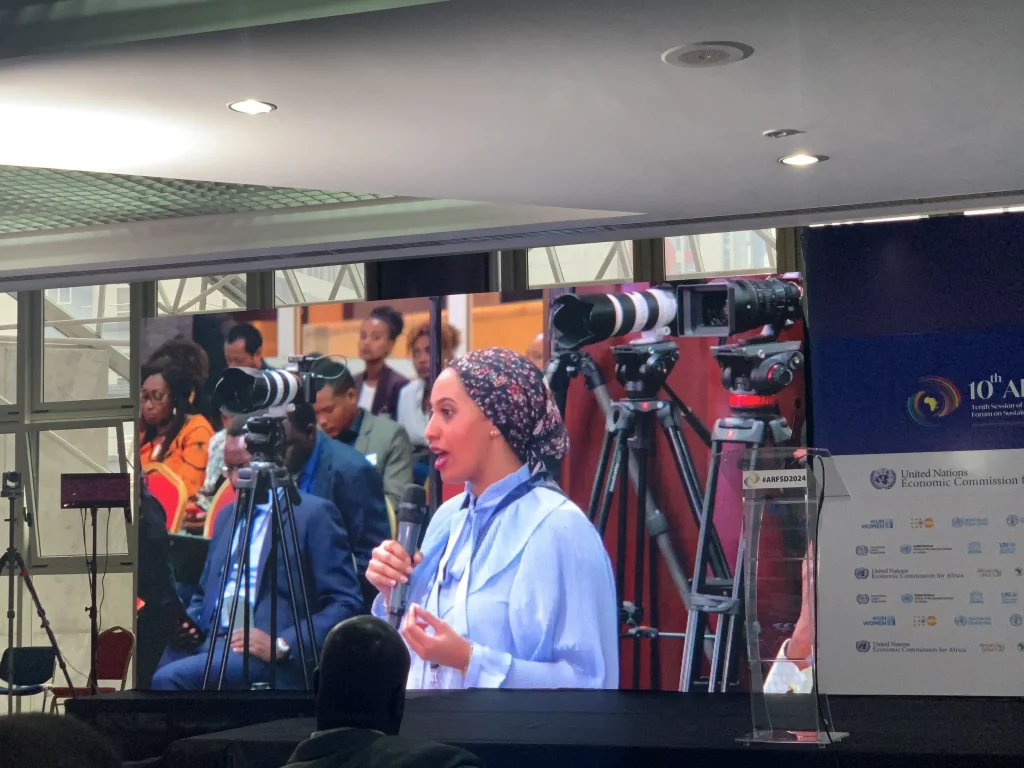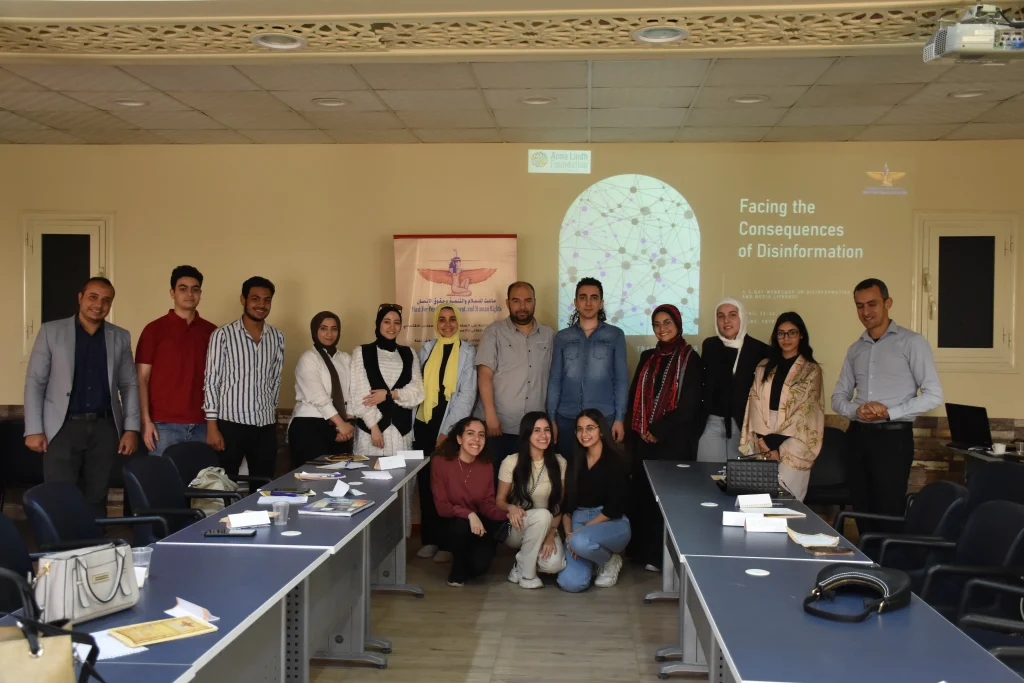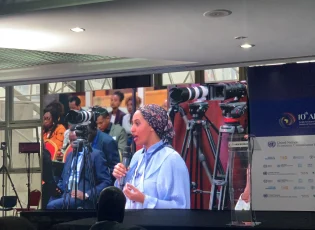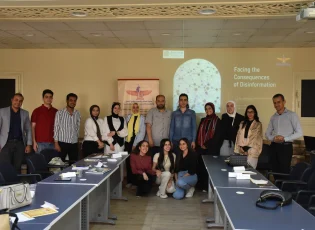Moulay Lahsen: We encourage civil society to submit recommendations to the African Commission on the situation of African human rights defenders
Kabisama: North African countries should launch initiatives to strengthen national dialogue with human rights defenders
Hilda: We call for the launch of a network of national alliances to enhance the legal work environment for women human rights defenders
Faizat: The pivotal role of women human rights defenders in the Horn of Africa region must be recognized, especially in conflict areas
Charles: We hope to build local networks to enable defenders to do their work as well as monitor and document ongoing violations
Issam El-Din: We call for the launch of regional networks in Africa to ensure safety of the work of all workers in the legal field
Friday, October 20, 2023, Maat for Peace, Development, and Human Rights organized a side event titled "Condition of Human Rights Defenders in Africa: In the Spotlight" on the sidelines of the 77th session of the African Commission held in Tanzania, from October 20 to November 9, 2023.
Convened at the Arusha International Conference Centre (AICC) in the United Republic of Tanzania, the Event aimed to shed light on the dire situation faced by human rights defenders across Africa and underscore the crucial role they play in creating a safe and peaceful environment for human rights. Besides, it highlighted the positive practices and national efforts in various African contexts to combat the intimidation and harassment of human rights defenders.
Naji Moulay Lahsen, a human rights expert and the Executive Director of the Network of the Independent Commission for Human Rights in North Africa, opened the Event, by emphasizing the challenging work environment for human rights defenders in several African countries, particularly those affected by political instability. As a member of the NGO Forum Steering Committee, Moulay Lahsen disclosed that during the previous session of the Forum (held from October 16 to 18), over 30 recommendations were received regarding the protection of human rights defenders in civic spaces, which indicates a growing trend of silencing peaceful opposition in African nations. Moulay Lahcen concluded his speech by urging civil society organizations working on African affairs to periodically submit specific recommendations that align with the vision of African civil society to the Special Procedures Mechanism of the African Commission on Human and Peoples' Rights. besides, he encouraged them to seek obtaining an observer status within the Commission to facilitate collaboration on the human rights defenders' agenda.
Speaking of North Africa, Ms. Martina Kabisama, an international expert in peacebuilding and National Coordinator of SAHRiNGON Tanzania Chapter, highlighted the tense human rights situation in several countries in North Africa. She emphasized how this affects the work environment for women human rights defenders. Kabisama acknowledged that some relatively stable countries, like Egypt, are making efforts to create a suitable human rights environment for legal professionals, specifically regarding the integration of human rights defenders into the national dialogue and their contributions to the launch of the National Human Rights Strategy.
Turning to the East African region, Ms. Hilda Dado, a lawyer at the Supreme Court in Tanzania and a member of the Coalition for Women Human Rights Defenders Tanzania, addressed the dual risks faced by women human rights defenders in Tanzania. Not only do they work in an unsafe human rights environment, but they also encounter gender-specific threats such as physical and verbal violence, social stigma, and threats to their honor. Hilda recommended the establishment of a regional alliance similar to the Tanzania Network for the Protection of Women Human Rights Defenders, and this alliance would comprise a network of national alliances aimed at improving the legal working environment for women human rights defenders.
Dr. Faizat Badmus-Busari, Director of the Regional Program at the Strategic Initiative for Women in the Horn of Africa (SIHA) Network (SIHA Network), drew attention to the challenges faced by women human rights defenders in the Horn of Africa region. She highlighted the clear threats they encounter, particularly in the context of recurring political crises and long-standing conflicts. Dr. Busari specifically mentioned the situation in Sudan, where several members of civil society organizations and women's networks were arrested during a peaceful protest. She stressed the need to recognize the pivotal role of women human rights defenders across the Horn of Africa region and advocated for empowering women to drive positive change in the human rights defenders' environment.
Charles Kajoloweka, Executive Director of the Youth and Society (YAS) Foundation in Malawi, emphasized the importance of civil society in safeguarding human rights defenders. He called for providing legal and psychological support to victims and for establishing local networks to enable defenders to carry out their work effectively. Kajoloweka also recommended enhancing the capabilities of local organizations to monitor and report human rights violations.
Concluding the Event, Pasant Essam El-Din, Director of the Sustainable Development Unit at Maat, emphasized the urgent need for action and collaboration among civil society organizations working to protect both male and female human rights defenders. Essam El-Din stressed the importance of launching regional networks across the five geographical regions in Africa to ensure the safety of all legal professionals engaged in human rights work.

















